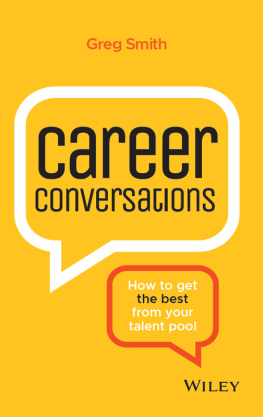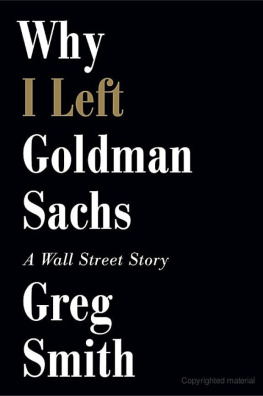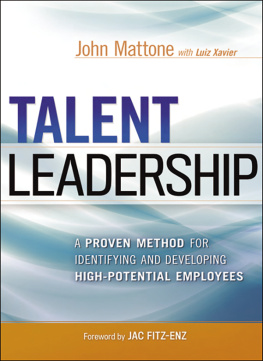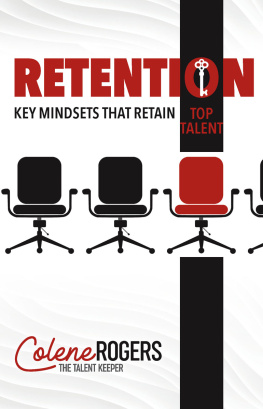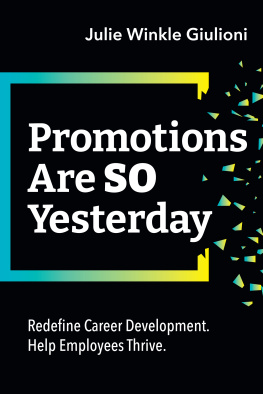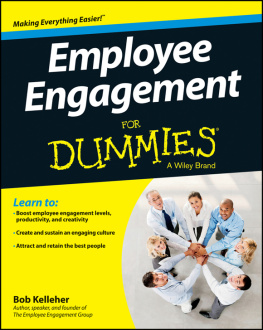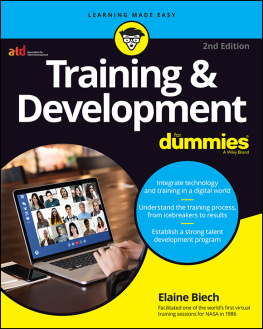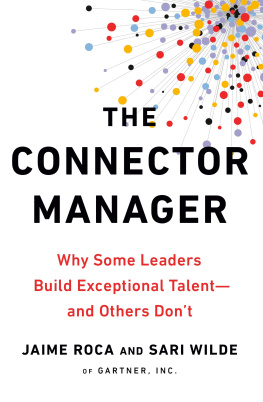

First published in 2019 by John Wiley & Sons Australia, Ltd 42 McDougall St, Milton Qld 4064
Office also in Melbourne
Typeset in 11/15 pt ITC Berkeley Oldstyle Std
John Wiley & Sons Australia, Ltd 2019
ISBN: 9780730371991
The moral rights of the author have been asserted

All rights reserved. Except as permitted under the Australian Copyright Act 1968 (for example, a fair dealing for the purposes of study, research, criticism or review), no part of this book may be reproduced, stored in a retrieval system, communicated or transmitted in any form or by any means without prior written permission. All inquiries should be made to the publisher at the address above.
Cover design by Wiley
Cover image: Mark Heider / Shutterstock
Internal image: cajoer/iStockphoto
Disclaimer
The material in this publication is of the nature of general comment only, and does not represent professional advice. It is not intended to provide specific guidance for particular circumstances and it should not be relied on as the basis for any decision to take action or not take action on any matter which it covers. Readers should obtain professional advice where appropriate, before making any such decision. To the maximum extent permitted by law, the author and publisher disclaim all responsibility and liability to any person, arising directly or indirectly from any person taking or not taking action based on the information in this publication.
To my wife, Sue, for her inspiration, encouragement and support while I wrote this book and followed my crazy dreams.
About the author
Greg Smith is an expert in the fields of career development, talent management and organisational leadership. He has more than 20 years' experience as a coach, mentor and consultant, and has led local and international commercial and consulting businesses in numerous senior executive roles. He holds a Master of Career Development and is a Certified Practising Marketer (CPM).
A career highlight was co-founding deliberatepractice, a highly successful and specialised HR consulting firm, which he headed up as managing partner and chief executive.
Greg's career focus today is helping aspiring, emerging and experienced leaders to develop their knowledge skills in guiding the careers of the people they lead and to build this capacity into their everyday leadership skill set. His inspiration for writing this book was to share the secrets of holding effective career conversations that he has learned over a long and varied leadership career.
Preface
This book was written for organisational leaders at all levels. I have deliberately avoided writing a conventional careers book'. I'll admit, when I first contemplated writing a book in the careers field, I thought it would lean towards self-help advice for people facing career transition. However, after coaching literally hundreds of executives and seeing firsthand the positive difference career development makes to their overall leadership effectiveness, I was drawn towards a different focus. I decided to write this guide for leaders seeking to develop their skills in holding career conversations and to build this capability into their everyday leadership skill kit.
More specifically, I wanted to share with you, as leaders, the secrets of holding effective career conversations I have discovered through my experience as a leader and careers and coaching expert, as well as from the top researchers and practitioners in these fields. My goal was to provide an easy-to-read and practical guide to leading better, fear-free career conversations in the pursuit of career satisfaction.
Grounded in theoretical and applied aspects of contemporary career management, my approach is underpinned by the research showing career satisfaction to be a key driver of personal and business success through superior talent management and strong leadership capability.
Career Conversations synthesises my accumulated experience in leading organisations at the chief executive level with my professional and academic experience in marketing, careers leadership, education and development over the past 30 years. I use real-world career stories throughout the book to illustrate the models and techniques recommended, although I have changed the names and industries for privacy.
I owe much of my learning to a number of colleagues, professionals, trusted advisers and friends whom I have had the great fortune to work with throughout my career. I have drawn on their invaluable experience, wisdom and insights in these pages.
This book offers leaders an accessible, easily navigable road map with which to guide their employees through their careers and towards achievement of their own career satisfaction. Most importantly, it works!
Introduction
Careers facilitate social engagement and play an important role in creating and defining meaning in our lives. Our careers help to shape our work and personal lives.
I believe everyone has a right to career satisfaction, which is a fundamental source of energy, creativity and capability. For many, however, career satisfaction can be as elusive as self-esteem. That said, when career harmony does exist, problems of the greatest complexity seem to be solved more quickly and easily. The positive impact on our lives is palpable and exciting. The payoff of better career conversations can therefore be remarkable.
In my experience, many leaders are fearful of confronting a lack of career satisfaction and its consequences, preferring to ignore the realities that surround them. Despite all that has been written and said about employees as free agents', I continue to be amazed at just how many leaders still feel ill equipped and reluctant to have meaningful career conversations with their employees. The implications of employeeorganisational relationships on individual career development and the co-dependencies at play cannot be understated.
Employees got the message loud and clear long ago that it was up to them to manage their own careers, but many don't know how to navigate their career pathways and receive little help from their manager or employer. I have found that many leaders lack career management and coaching skills to assist them; indeed, quite a few are fearful of the most basic career discussions. This has resulted in their delegating this aspect of their leadership responsibility to Human Resources or outsourcing it entirely to an external career coach. No matter how capably handled, neither option is likely to be as valuable in helping employees with their career development as if you, their leader, delivered it!
Some leaders believe discussing career aspirations may unsettle their employees or, worse, drive them to unrealistic career aspirations or demands. Either way, it seems many fear that beginning a career conversation risks opening up a discussion they would rather not have. This could not be further from what's actually needed.
It might surprise leaders imbued with these views to know that their employees routinely think about their career much of the time, whether asked about it or not. Leaders need to be acutely attuned all the time to their employee's state of mind with regard to their career and relationship with the organisation. They should be agile and committed in how, when and where they engage with their employees, especially when it comes to their careers. This requires leaders to build this commitment and flexibility into their leadership routine. I discuss the importance of agility with regard to leadership and career conversations in .
Next page
